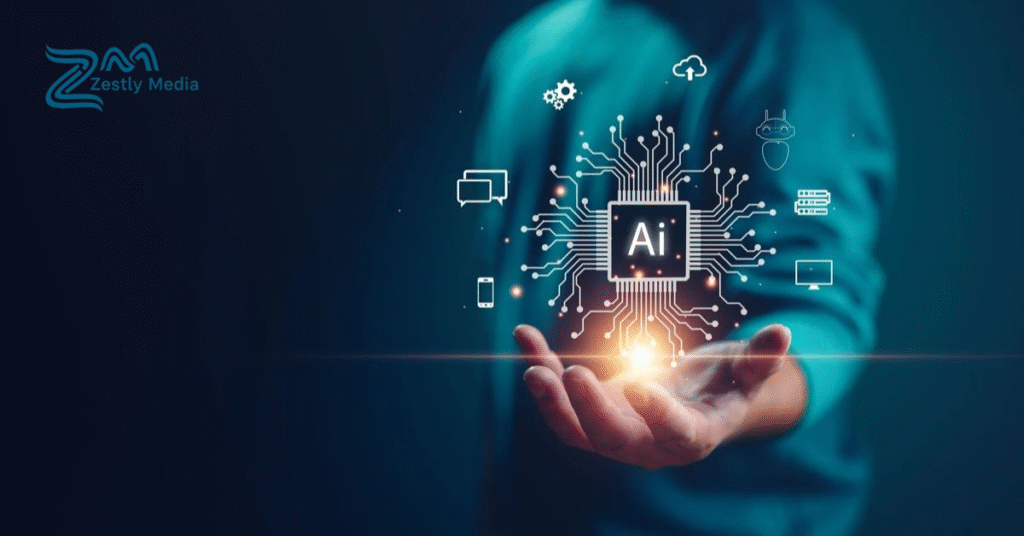Artificial Intelligence (AI) is reshaping industries across the globe, and digital marketing is no exception. In today’s fast-paced online environment, AI is enabling businesses to understand their customers better, optimize marketing campaigns, and deliver highly personalized experiences. From analyzing massive datasets to automating content creation, AI is becoming an indispensable tool for marketers who want to stay ahead of the competition.
In this blog, we’ll explore how AI is playing a significant role in digital marketing and why it’s a game-changer for businesses.
Understanding Artificial Intelligence in Digital Marketing
Artificial Intelligence in digital marketing refers to the use of machine learning algorithms, data analytics, and automation technologies to improve marketing efficiency and accuracy. AI can process and interpret vast amounts of consumer data faster than humans, helping marketers make informed decisions and create strategies that yield better results.
Personalization at Scale
One of the most powerful capabilities of AI in marketing is delivering personalized experiences at scale. Today’s consumers expect brands to know their preferences and cater to their needs. AI enables businesses to:
Recommend products based on browsing and purchase history.
Send personalized email campaigns to segmented audiences.
Display targeted ads that match user behavior and interests.
For example, Netflix uses AI algorithms to recommend shows, while e-commerce giants like Amazon suggest products that customers are most likely to buy.
Predictive Analytics for Smarter Campaigns
AI leverages predictive analytics to forecast customer behavior and market trends. By analyzing historical data and patterns, AI tools can predict:
Which leads are most likely to convert.
The best time to send marketing emails.
Future demand for products or services.
With these insights, marketers can allocate resources effectively and design campaigns that deliver higher ROI.
Chatbots and 24/7 Customer Support
AI-powered chatbots have revolutionized customer service in digital marketing. They can:
Answer frequently asked questions instantly.
Guide customers through the buying process.
Provide real-time product recommendations.
These chatbots, driven by Natural Language Processing (NLP), can engage in human-like conversations, offering convenience to customers and freeing up human agents for more complex tasks.
Content Creation and Optimization
AI tools like Jasper, Copy.ai, and ChatGPT help marketers produce high-quality content faster. AI can:
Generate blog posts, ad copies, and social media captions.
Suggest keywords and optimize headlines.
Analyze audience engagement to refine future content strategies.
While human creativity is still essential, AI makes the content creation process more efficient and data-driven.
Programmatic Advertising
Programmatic advertising uses AI to automate the buying and placement of digital ads. Instead of manually negotiating ad placements, AI systems analyze audience data and place ads where they will have the most impact. This leads to:
Better targeting accuracy.
Reduced wasted ad spend.
Higher conversion rates.
For example, if a user searches for “best running shoes,” AI ensures that relevant shoe ads appear across various platforms almost instantly.
SEO and Search Algorithms
Search engines like Google use AI-powered algorithms, such as RankBrain and BERT, to understand search intent and deliver relevant results. Marketers use AI-driven SEO tools to:
Find high-value keywords.
Analyze competitor strategies.
Optimize content for better search rankings.
AI also plays a role in voice search optimization, as more users rely on voice assistants like Alexa and Siri.
Customer Behavior Analysis
AI can uncover patterns in customer behavior that humans may overlook. For instance:
Identifying the peak times when users engage with content.
Tracking buying patterns across seasons.
Recognizing high-value customers for loyalty programs.
These insights allow marketers to craft more targeted and effective campaigns.
Fraud Detection and Security
Digital advertising faces challenges like click fraud and bot traffic. AI helps combat these issues by detecting unusual engagement patterns and flagging suspicious activity. This ensures that marketing budgets are spent effectively and securely.
Improving ROI with Automation
AI-driven automation tools streamline marketing processes, saving time and reducing costs. Tasks like email scheduling, ad bidding, and social media posting can be automated, allowing marketers to focus on strategy and creativity.

Final Thoughts
Artificial Intelligence is revolutionizing digital marketing by making it smarter, faster, and more customer-focused. From personalization and predictive analytics to chatbots and programmatic advertising, AI is helping brands create data-driven strategies that deliver measurable results.
As AI technology continues to advance, its role in digital marketing will only grow. Businesses that adopt AI now will be well-positioned to provide better customer experiences, increase efficiency, and drive higher returns on investment in the future.


